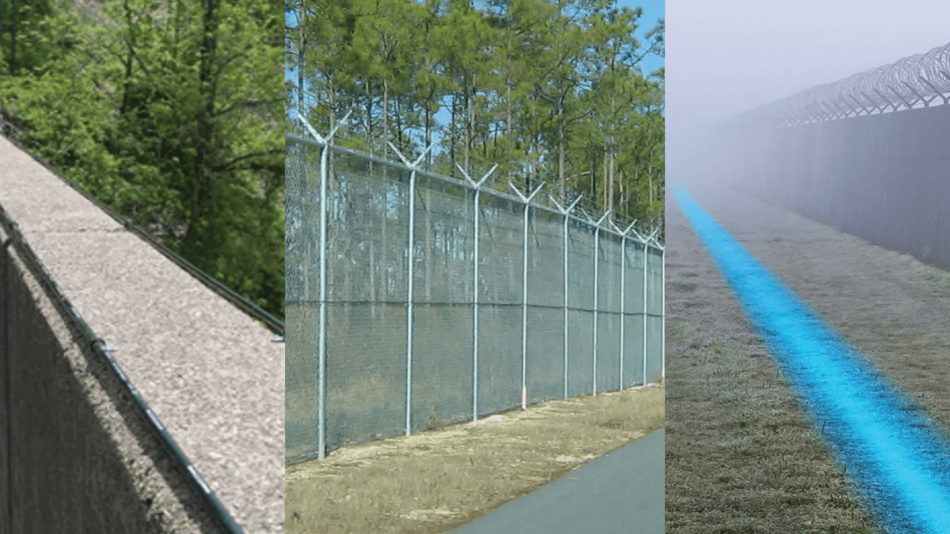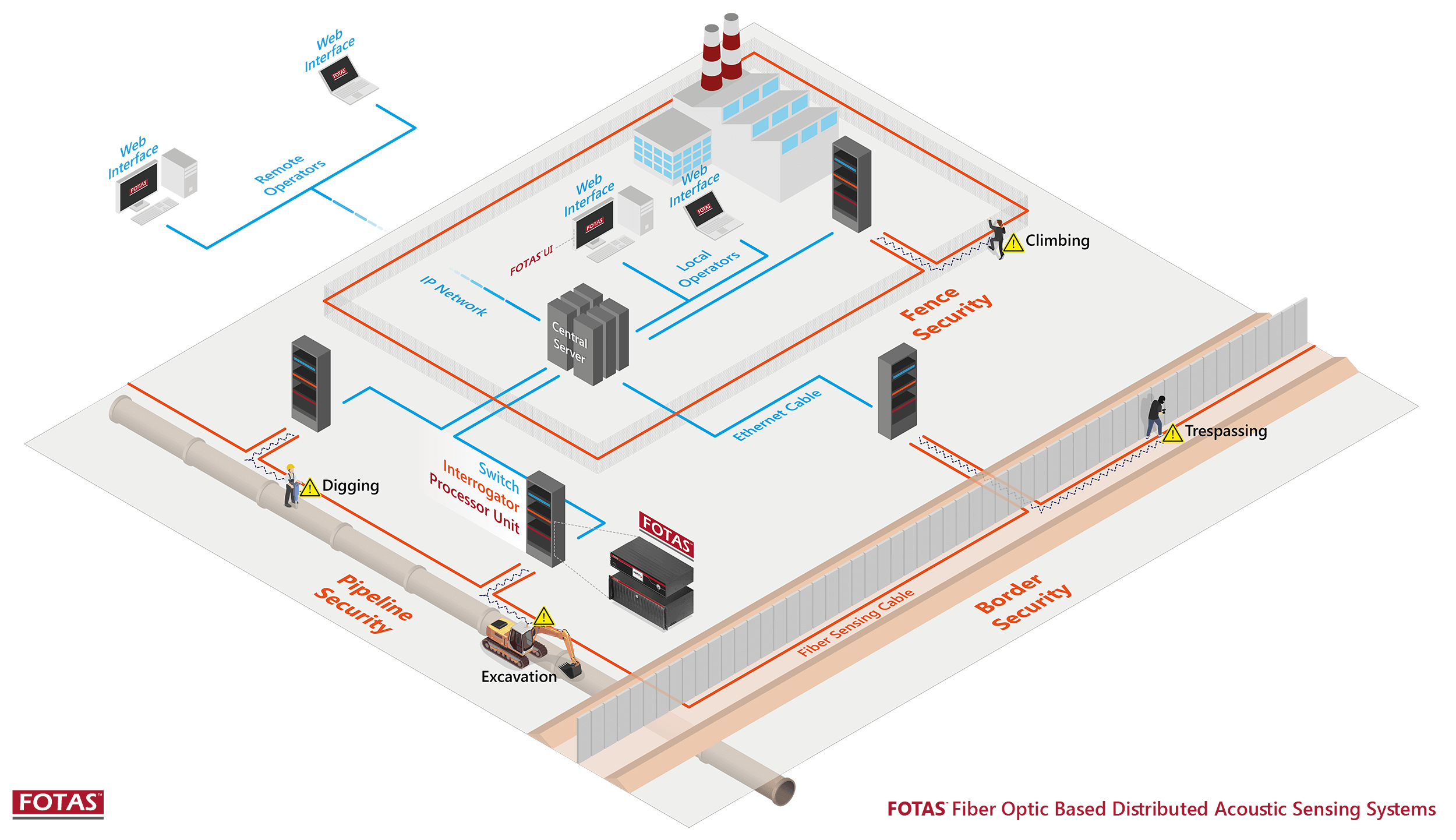The Advantages of a Fiber Optic Security System for Next-Generation Security Solutions
Secure Your Home With Reliable Fiber Optic Protection Solutions
In an age where security dangers are increasingly advanced, the need for efficient security solutions is vital. Fiber optic safety and security systems attract attention by providing remarkable integrity and performance, leveraging sophisticated light transmission technology to boost monitoring capacities. These systems not only give immunity to electromagnetic disturbance but likewise assure long-term cost effectiveness via lowered maintenance demands. The choice to invest in such an option entails careful consideration of different aspects. Recognizing the intricacies of fiber optic safety and security can illuminate the path to securing your residential or commercial property a lot more successfully. What aspects should be explored to maximize your investment?
Advantages of Fiber Optic Security
Fiber optic protection options use a series of advantages that make them significantly necessary in today's electronic landscape. One of the most significant advantages is their remarkable bandwidth ability, which permits the transmission of large quantities of information over fars away without considerable signal degradation. This capacity is particularly useful for safety systems that rely on high-def video security and real-time tracking.
Additionally, fiber optic wires are inherently more safe than conventional copper circuitry. They are unsusceptible to electro-magnetic interference, making them much less susceptible to hacking or eavesdropping. This boosted safety and security is critical for securing delicate data and keeping the integrity of security systems.
Furthermore, optical fiber are much more long lasting and immune to ecological elements, such as dampness and temperature changes, ensuring long-lasting reliability and minimized upkeep costs. The light-weight nature of fiber optic cable televisions additionally simplifies installation procedures, permitting greater versatility in system layout.
Just How Fiber Optic Systems Work
In modern-day protection applications, the procedure of fiber optic systems relies upon the concepts of light transmission with versatile glass or plastic fibers. These fibers are created to bring light signals over fars away with minimal loss, making them ideal for transmitting information related to safety and security monitoring. The core of the fiber, surrounded by a cladding product, makes sure that light signals stay included within the core through a sensation referred to as overall internal representation.
When incorporated into safety and security systems, fiber optic cable televisions can transmit information from different sensors, such as cameras, activity detectors, and alarm systems, to a central surveillance terminal. The high bandwidth ability of fiber optics permits for the transmission of big amounts of information concurrently, allowing real-time surveillance and timely reaction to possible dangers.

Kinds Of Fiber Optic Security Solutions
Numerous sorts of fiber optic protection remedies have actually emerged to improve surveillance and defense across various atmospheres. One prominent option is fiber optic perimeter invasion detection systems (PIDS), created to keep track of and safeguard home boundaries with the detection of vibrations and disruptions along fiber optic cable televisions. These systems supply real-time alerts, allowing prompt reactions to unapproved access attempts.
An additional effective solution is fiber optic video clip security. This technology leverages high-definition electronic cameras connected through fiber optic cords to send video clip data over fars away without significant loss of high quality. This arrangement is particularly helpful in large areas, such as flight terminals and commercial websites, where traditional copper cable televisions may fail.
In addition, fiber optic sensing units are increasingly used for environmental tracking, identifying changes in temperature, pressure, or acoustic signals that might suggest safety violations or unsafe problems. These sensing units supply high sensitivity and precision, making them perfect for vital facilities security.

Installment and Upkeep Tips
Effective installment and upkeep my response of fiber optic safety and security solutions are crucial for guaranteeing their ideal efficiency and long life. Fiber optic cable televisions should be transmitted safely, avoiding sharp bends or spins that might jeopardize their integrity.
Throughout setup, it is advisable to perform extensive testing of the system to validate that all elements are operating properly. Regular upkeep checks should be set up to examine the fiber optic wires for any type of signs of wear or damage, along with to make sure that links stay secure. Cleaning up the adapters regularly is additionally important to avoid signal loss because of dirt or debris.
In addition, keeping an upgraded inventory of set up components and their requirements can help with less complicated troubleshooting and upgrades. By adhering to these installment and maintenance ideas, homeowner can make best use of the efficiency of their fiber optic protection solutions, making sure a reliable defense versus potential dangers.
Contrasting Costs and Efficiency
When reviewing fiber optic security options, recognizing the balance in between prices and effectiveness ends up being extremely important (security fibers). Organizations should think about the ahead of time financial investment, recurring maintenance expenses, and the long-lasting value these systems supply. While fiber optic systems might require a higher initial setup price contrasted to typical copper wiring, their sturdiness and minimized sensitivity to electro-magnetic disturbance often translate to lower maintenance expenses in time
Efficiency is one more vital aspect; fiber optic safety systems use improved data transmission speeds and improved reliability. They can cover larger ranges without signal destruction, making them excellent for large properties or remote locations. The high bandwidth ability sustains sophisticated security applications, such as high-def video surveillance and real-time surveillance, which are necessary for detailed safety and security monitoring.
Eventually, the choice in between expense and effectiveness should be guided by details safety and security requirements and risk assessments. Organizations has to analyze their unique demands, taking into consideration factors like residential or commercial property dimension, safety and security dangers, and technological improvements. By performing an extensive cost-benefit evaluation, stakeholders can make enlightened choices that straighten with their security purposes while guaranteeing an audio investment in fiber optic innovation.
Verdict
In conclusion, fiber optic safety and security solutions offer substantial benefits in terms of efficiency, dependability, and immunity to environmental disturbances. Inevitably, the fostering of fiber optic innovation represents a forward-thinking approach to guarding buildings versus progressing safety and security threats.